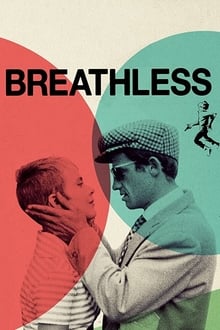
A key film of the late Fifties/early Sixties French New Wave, À bout de souffle (Breathless) opens with suave lowlife Michel Poiccard (Jean-Paul Belmondo) stealing a car. When he's caught speeding on the way to Paris and pursued by the police, Michel kills the officer. Desperate to collect some money owed and make his escape to Italy, he hides out with Patricia (Jean Seberg), an American girl he had slept with once and who is oblivious to the danger he's in.
This is one of the most influential films of all time in its liberal use of jump cuts, in idolizing American noir films and transferring that aesthetic to a foreign country, and its allusions to other films and even self-referentially to itself. Goddard left plenty of signs that he was seeking to overturn the staid French mainstream tradition, such as when Michel rebuffs a hawker selling Cahiers du cinema (the French film magazine), or when Patricia interviews a film director named Parvulesco, who is none other than Godard's New Wave comrade-in-arms Jean-Pierre Melville.
À bout de souffle is undeniably dated. Even knowing all that context around its creation and reception, I found it hard to be really bowled over and cannot award the film a full five stars – and I am a great fan of Godard’s subsequent work. Still, there's a lot to like. I'm particularly fond of the film's dialogue, which revels in French slang that hitherto had not been consider "proper" for art, most of which goes over Patricia's head and some of which Michel explains. In that sense one might compare the film to Raymond Queneau's novel Zazie dans le métro from the same time. The sexual frankness of its young characters might surprise younger viewers who would place this social upheaval to later in the 1960s.